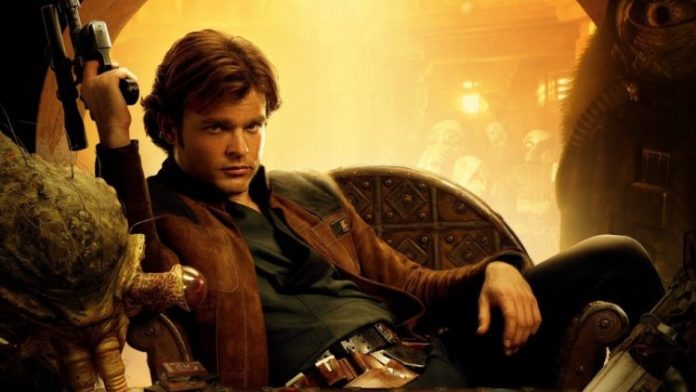Marvel’s Cloak and Dagger is the newest entry to the Marvel television universe. The story takes place in New Orleans and revolves around two teenagers who appear to be connected via some supernatural force after the two of them were exposed to both tragedy and some mysterious energy as children. The two protagonists are Tandy Bowen, the Dagger, and Tyrone Johnson, the Cloak. This article will focus on Tandy Bowen who lost her father at a young age. As a result, Tandy’s mother became addicted to drugs and Tandy was forced to resort to a life of crime to provide for herself.
When we first meet Tandy Bowen in Marvel’s Cloak and Dagger, she’s already in the midst of her first crime. Tandy is seducing Rick, a random rich boy, into taking her back to his uncle’s place where she will proceed to rob him blind. Unfortunately for Tandy, Rick eventually finds Tandy and attempts to sexually assault her while she is pinned up against an alley wall. Unbeknownst to Rick, Tandy is gifted with supernatural powers and the ability to create “light daggers.” Placed in a dangerous situation, Tandy’s powers instinctively activate and she stabs Rick in the stomach with one of her “light daggers.”
Is Tandy guilty of involuntary manslaughter?
Could Tandy be convicted with involuntary manslaughter or assault with a deadly weapon? Although Rick’s health status is not yet confirmed, let’s explore the situation where he passes away from being stabbed by Tandy’s “light dagger.”
The first question that must be answered is whether Tandy is being tried in a Federal or State court. Considering the prevalence of super-powered individuals in the Marvel universe, it is likely that there is some structured Federal body like S.H.I.E.L.D. that may deal with the investigation and potential court proceedings. However, considering Tandy is just developing her powers and is a teenager, those Federal agencies may be busy dealing with the likes of Ghost Rider or more established and notorious super-powered individuals. In that case, perhaps Tandy would be tried in a state court.
But proceeding with the assumption that Tandy would be tried under Federal law, under 18 U.S.C. § 1112, Manslaughter, the Federal statutory definition of involuntary manslaughter is: “. . . the unlawful killing of a human being without malice. . . . In the commission of an unlawful act not amounting to a felony, or in the commission in an unlawful manner, or without due caution and circumspection, of a lawful act which might produce death.”
Unlike murder, involuntary manslaughter does not require the attacker to have an intent to kill, but rather, the killing can be unintentional. U.S. v. Paul, 37 F.3d 496, 499 (9th Cir. 1994). However, a killing under involuntary manslaughter must show “wanton or reckless disregard for human life.” Id. Involuntary manslaughter also requires a knowledge requirement. The attacker must have actual knowledge that her actions could be a threat to the lives of others. U.S. v. Pardee, 368 F.2d 368, 374 (4th Cir. 1966).
Based off the statute and statutory interpretation from Courts of Appeals, Tandy will probably be off the hook for involuntary manslaughter in a Federal court. First, the scene clearly shows that Tandy did not display any indication of “wanton or reckless disregard for human life.” The scene shows that she is scared and although she fights back, nothing she did appeared to show disregard for human life. Furthermore, Tandy has no awareness of the extent of her power so she is not actively displaying any negligent or reckless behavior. Second, Tandy has no intention of inflicting any sort of fatal injury, as her power seemed to have activated without her knowledge.
Self-defense via “light daggers”
Furthermore, Tandy’s attorney—perhaps a certain Matthew Murdock?—could offer the affirmative defense of self-defense. Although there is no Federal self-defense statute, Model Penal Code (hereafter MPC) § 3.04 offers some guidance. The MPC states that “the use of force upon or toward another person is justifiable when the actor believes that such force is immediately necessary for the purpose of protecting [herself] against the use of unlawful force by such other person on the present occasion.” § 3.04. Use of Force in Self-Protection., Model Penal Code § 3.04. While the MPC guidelines appear to provide Tandy with viable defense strategy, a crafty prosecutor might argue that Tandy had no idea the level of force she was going to inflict upon Rick because she had no idea of her powers. Id. As a result, her actions would not qualify for the MPC language which states “the actor believes that such force is immediately necessary,” since she had no belief or knowledge of her powers.
Are “light daggers” a dangerous weapon?
On the other hand, if Rick survives his injuries, Tandy could be tried for assault. The Federal statute, 18 U.S.C. § 113(a)(3) Assault with a dangerous weapon, appears to be the most applicable charge against Tandy. Although the Federal assault statute does not define what a “dangerous weapon” is, existing Federal case law has awarded the term a broad definition. For example, in U.S. v. Sturgis, an HIV infected defendant’s bite was considered a “dangerous weapon.” 48 F.3d 784, 787-88. Considering the broad interpretation courts have given to the term “dangerous weapon,” I imagine a Federal prosecutor would be able to establish that Tandy’s “light daggers” constitute a “dangerous weapon.”
Ultimately, Tandy would probably be able to fend off a charge of involuntary manslaughter or assault with a deadly weapon with a self-defense argument, but if a crafty Federal prosecutor can prove that Tandy did not actually have the knowledge of the force she was about to inflict, her defense may be challenged.
On an interesting note, Tandy’s situation differs greatly from Tyrone’s interactions with his newfound power. Although Tyrone’s powers do not yet appear offensive in nature, Tyrone is actively seen trying to trigger his powers. However, that is left to a separate discussion.



























